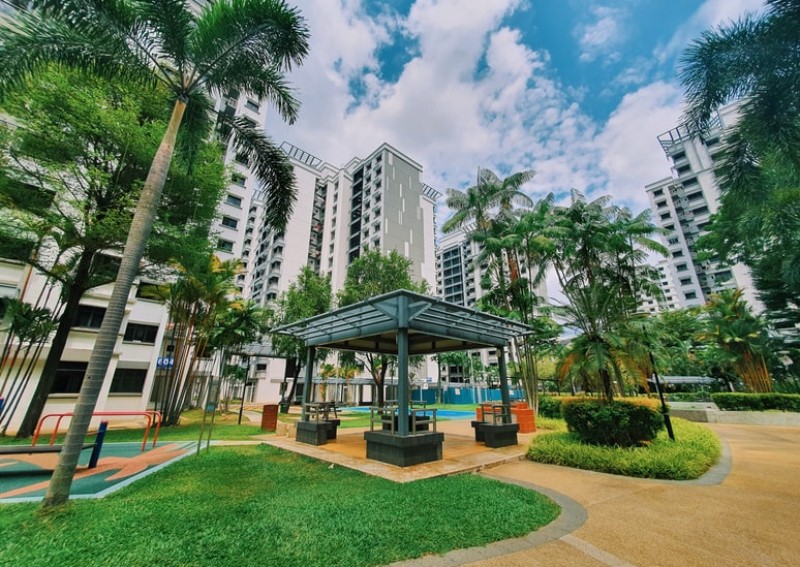A guide to leasehold and freehold properties

It is the age-old private property investment debate; Leasehold vs Freehold.
What are the key differences and is one truly better than the other? On Prime Time's Powering Your Property segment, Rachel Kelly and Shezad Haque spoke to Nicholas Mak, Head of Research and Consultancy at ERA Realty to find out more.
Nicholas Mak: First of all, we need to define what property ownership is — what do you actually own when you buy a property? The answer is that you are buying a bundle of rights — the rights to use the property for certain purposes.
If you own a freehold property, your rights basically last forever. So you can sell the rights [of the property] to the next person, and it could go on for generations.
If you own a leasehold property, for residential or commercial purposes, the lease would be around 99 years. And that means the bundle of rights would only last for the duration of the lease.
There are properties with even shorter leases, such as industrial properties with leases of 60 years, 30 years or even 20 years. On the other side of the spectrum, there are some residential properties with a 999 or even 9999-year leases.
The longest I have seen is a lease just one year short of a million years!
NM: In terms of valuation, there is actually not much of a difference between the two. A leasehold property (with a lease of more than a thousand years) typically would be valued the same as a freehold property.
The concept of a long lease originated from British property laws. You would notice that most of the properties with a 999-year lease all began around the year 1852 to 1856.
Now, you will notice mostly shorter leasehold properties [99 years or less], and as an owner, it would be good to note the expiry date of the lease.
NM: While the land tenure of a leasehold or freehold property is important, the more important considerations would be the location, size, and price of the property.
You have to ask yourself if the property fits your needs and your financial capability before you look into the issue of choosing between a leasehold or freehold tenure.
The reason is, the consideration of choosing between the two comes into play typically when choosing older properties, especially those that are more than 30-years-old.
Because the 99-year lease would have reduced a fair bit and that would leave you with around 60 years remaining or less. That may have an impact on some, especially younger buyers, who are using their CPF [for housing loans].
While this might not be a concern for freehold properties, buying any older property comes with its own set of considerations. For example, you have to factor in the maintenance [cost] of the property and whether there are visible wear and tear [impacts overall costs].
NM: Yes, because freehold properties cannot be found throughout all parts of Singapore. Usually, they can be found in the older and [less ideal] parts of Singapore, and in the prime district(s).
But in locations where land has been acquired by the government, such as those in Punggol, Choa Chu Kang, Woodlands and Jurong, you will hardly find freehold properties because the Government owns the lease title, and it is in their policy to sell only leasehold properties.
RK: Talk to us about the impact that freehold and leasehold properties can have on their prices. Is the common perception of freehold properties being priced higher than leasehold properties true?
NM: Yes, it is true. With a freehold property, you essentially own the rights of that property forever. If you were to compare a resale property with a 99-year lease against a resale condominium that is freehold — with equal conditions — you can expect to see the freehold condominium to be anywhere from 25 per cent to 35 per cent more expensive.
NM: When a developer buys over a condominium through an en bloc or collective sale, they are not that interested in the building, but rather the land since they will be tearing down the building to redevelop it.
So, if it is a freehold condominium, they may have to pay a development charge to increase the buildable floor area. But, they do not need to top up the lease as it is freehold in perpetuity.
However, if they were to buy over an ageing, 99-year leasehold property, they would have to pay the Government a lease top-up premium to renew and refresh the lease back to 99 years — on top of the usual development charges.
Hence, for owners intending to sell a 99-year leasehold property (with very few years left) through an en bloc sale, they may not be able to get as much money as compared to the owners of a freehold property.
Listen to the full podcast on Awedio: SPH's free digital audio streaming service, to find out the rental value of freehold and leasehold properties, along with what happens to a lease after 99 years, if that is the stated tenure.
Download the podcast.
This article was first published in Money FM 893.